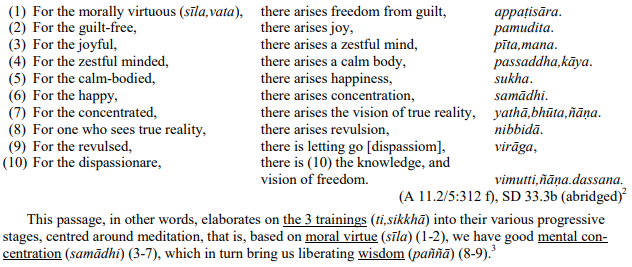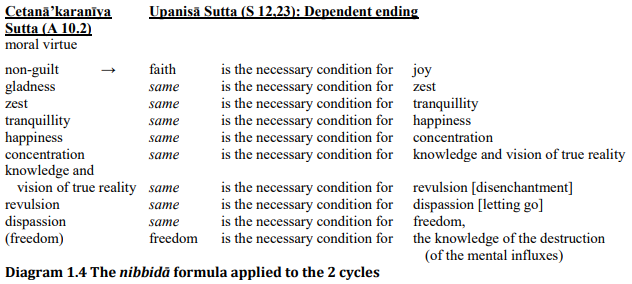I think this is asking, "Why is 'joy' called a 'path factor', if 'nibbana' is 'peaceful' rather 'joyful'?"
So.
I think there are elements which support the (practice of the) path, though they are not the goal.
One (other) example is 'conceit', which is defined here (defined as "comparing yourself with another person"), and which is included in AN 4.159 ...
'This body comes into being through conceit. And yet it is by relying on conceit that conceit is to be abandoned.' Thus was it said. And in reference to what was it said? There is the case, sister, where a monk hears, 'The monk named such-and-such, they say, through the ending of the fermentations, has entered & remains in the fermentation-free awareness-release & discernment-release, having known & realized them for himself in the here & now.' The thought occurs to him, 'The monk named such-and-such, they say, through the ending of the fermentations, has entered & remains in the fermentation-free awareness-release & discernment-release, having known & realized them for himself in the here & now. Then why not me?' Then he eventually abandons conceit, having relied on conceit. 'This body comes into being through conceit. And yet it is by relying on conceit that conceit is to be abandoned.' Thus was it said, and in reference to this was it said.
... which I read as saying, "If I practice like he did then I too will attain etc.". So that's an example of conceit supporting the practice, though it's not the goal (conceit is even antithetical, it's one of the fetters, ultimately uprooted).
Now about 'joy'.
One sutta that's mentioned in is AN 11.1 ...
"Thus in this way, Ananda, skillful virtues have freedom from remorse as their purpose, freedom from remorse as their reward. Freedom from remorse has joy as its purpose, joy as its reward. Joy has rapture as its purpose, rapture as its reward. Rapture has serenity as its purpose, serenity as its reward. Serenity has pleasure as its purpose, pleasure as its reward. Pleasure has concentration as its purpose, concentration as its reward. Concentration has knowledge & vision of things as they actually are as its purpose, knowledge & vision of things as they actually are as its reward. Knowledge & vision of things as they actually are has disenchantment as its purpose, disenchantment as its reward. Disenchantment has dispassion as its purpose, dispassion as its reward. Dispassion has knowledge & vision of release as its purpose, knowledge & vision of release as its reward.
"In this way, Ananda, skillful virtues lead step-by-step to the consummation of arahantship."
... where 'rapture` is a translation of Pīti and 'joy' is a translation of Pāmojja.
I think that's because:
It wants to say that joy can be unconditioned -- or actually not, because it is conditioned -- but not conditioned by e.g. the pursuit of sensuality. In other words, there's another basis for joy which isn't related to pursuit of sensuality.
MN 10 implies that mindfulness of the 'seven factors for Awakening' is a "purification" and means of overcoming the 'five hindrances'.
It's associated with meditation -- or with one of the meditative states -- for example here:
Having given up covetousness [i.e., sensual desire] with regard to the world, he dwells with a heart free of covetousness; he cleanses his mind from covetousness. Having given up the blemish of ill will, he dwells without ill will; friendly and compassionate towards all living beings, he cleanses his mind from the blemishes of ill will. Having given up sloth and torpor, he dwells free from sloth and torpor, in the perception of light; mindful and clearly comprehending, he cleanses his mind from sloth and torpor. Having given up restlessness and worry, he dwells without restlessness; his mind being calmed within, he cleanses it from restlessness and worry. Having given up doubt, he dwells as one who has passed beyond doubt; being free from uncertainty about wholesome things, he cleanses his mind from doubt...
And when he sees himself free of these five hindrances, joy arises; in him who is joyful, rapture arises; in him whose mind is enraptured, the body is stilled; the body being stilled, he feels happiness; and a happy mind finds concentration. Then, quite secluded from sense pleasures, secluded from unwholesome states of mind, he enters and dwells in the first jhana, which is accompanied by applied thought and sustained thought, with rapture and happiness born of seclusion.
There's a whole series of suttas about the factors, which you might like to read -- Bojjhaṅga Saṃyutta (SN 46)

